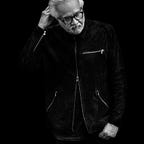Will “Black Panther” Help To End Racism In America?
Three cheers for “Black Panther.”
Backflips for “Black Panther” (do not try this at home).
100 hand claps for “Black Panther.”
We don’t know yet if “Black Panther” will earn an Oscar, but the blockbuster film starring an (mostly) all-black cast has created a global social phenomenon even greater than its ticket sales.
Within minutes of the film’s opener, we watch six kids shooting hoops on an Oakland blacktop. Suddenly, a spaceship appears in the sky above. When the boys look up, they drop their basketballs.
The kids stare at the starship looking looking looking, awestruck, as if they are being transported toward something larger than themselves.
“Black Panther” is the new blockbuster movie from Marvel that is toppling attendance records in markets all over the world.
Whisked back to his native land via starship, the Black Panther (Chadwick Boseman plays T’Challa) suddenly goes Indiana Jones on viewers to liberate a truck convoy of young women being carried into slavery.
Within the first five minutes, “Black Panther” resets history. Take away slavery, take away basketball and what have you got?
A magic kingdom called Wakanda.
A fictional African world that used its wiles to escape Western imperialism and colonization in the last centuries, Wakanda has meanwhile created science and technologies further advanced than any Silicon Valley or Samsung coder conference.
Wakanda is endowed with supranatural technologies, Zaha Hadid-inspired architecture and modern-day politics, underpinned by a soundtrack curated by Kendrick Lamar.
All black. All tech. All future forward.
Aspiration is the super-charged spine that propels Marvel director Ryan Coogler’s “Black Panther” forward, and for the optimistic viewer it is less about “If only” and more about “What if” and “Why not?”
Of course, all superhero movies are aspirational, that’s the point. If we could only burst out of our mortal skins, any of us could become superhuman.
But the point here may be more practical.
For 250 years (or more) we have remained bogged in the creation mythos of slavery and 200-year old abolitionist arguments trying to raise up Black America to become equals with their fellow citizens.
“Black Panther” changes that conversation. And poses a new one.
Maybe not “equal to.” Maybe “better than.”
Time and demographics have shifted. The reality is that the color of a person’s skin does not determine the caliber of their intelligence, talent or intentions. After all, we live in a world where people whose skin is darker than vanilla (without the bean) have become world-famous biologists, scientists, authors, astronauts, businesspersons, Supreme Court Justices, even a President of the United States.
As Angela Bassett playing the role of Black Panther’s mother intones, “Stand up. You are a king.” Actor Bassett further elaborates in a Vanity Fair article,
“It’s an iconic film. It’s such positive images . . . They [black children] can see themselves in a light as warriors, as heroes, as kings, as queens, and potential panthers.”
Yes.
The most likeable role model in “BP” is likely not the Black Panther at all, but T’Challa’s younger sister Shuri, played with wit by actor Letitia Wright. A young whiz kid, Shuri is the adaptive, innovative, inspired technophile. Shuri is to Wakanda what “Q” is to James Bond.
Wakanda has superior science, superior medical care, as well as superior weaponry capable of taking over the whole world, thanks to the special gift of “vibrainium.”
(Notice the etymological similarity between vibranium and “braniac.”)
Hate turns Wakanda from a fairy tale into a battlefield of weapons and armor-plated rhinos, and so the rest of the “Black Panther” epic becomess a battle between balance and supremacy.
Ultimately, the dominant culture wins .African American culture has been sourced by U.S. pop culture for some time, from rock&roll roots to wearing baseball caps backwards to today’s hip-hop influences.
In the real world, the moral authority switches to whichever side has the agency to produce good works. If the best that White America can do is produce a hate-spitting orange-haired President and the NRA, then the moral authority tilts elsewhere.
Ultimately, Wakanda is isolated because it is a fantasy kingdom. But let’s not forget that Silicon Valley today exists because it has been able to capture and produce technologies once imagined only in science fictions and on the silver screen.
Watches with micro-televisions. Magnetic levitation. Google glass. Holograms. All of these were once fantastical imaginings. Delusions, even.
Once the Afrofuturist ideal has been projected, it is left to the children to capture the dream and create their own magical universe.
NOTE: When this piece first was written weeks ago, it was speculation. But the July 15, 2018 issue of The New York Times, a piece written by Seema Jayachandran pointed to a thought experiment that happened recently in Africa.
In Kampala, children were shown an inspirational movie before they were given a test. The movie was “Queen Of Katwe” based on the real-life story of a young Ugandan girl named Phiona Mutesi who became a champion chess player (the movie starred Lupita Nyong’o — who, curiously, also stars in “Black Panther”).
As Jayachandran writes, significantly more of the children who were shown the inspirational “Queen Of Katwe” movie had test scores high enough to gain admission to a public university.
Which demonstrates that positive role models and cultural reinforcement that points toward higher purpose can help influence individual behaviors and change.
Wakanda forever.
